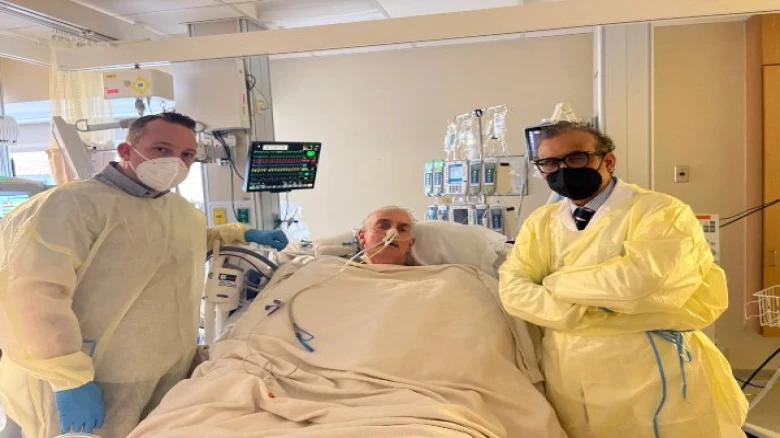Bennett's heart got infected with porcine cytomegalovirus, a preventable condition related to severe consequences on transplants.
Digital Desk: Researchers looking to discover what killed the first person to receive a
heart transplant from a pig have detected an animal virus in the organ, but they can't determine whether it played a part in the man's death.
In March, David Bennett, aged 57, died two months after the breakthrough experimental transplant.
Doctors at the University of Maryland said that they discovered an unwanted discovery – viral DNA within the pig heart. They discovered no evidence that the bug, known as porcine cytomegalovirus, produced an active infection.
However, one big concern regarding animal-to-human transplants is the possibility of introducing new types of illnesses into humans.
"It may be a companion," said Bartley Griffith, the surgeon who conducted Mr. Bennett's transplant, because certain viruses are "latent," meaning they lurk without producing disease.
According to Muhammad Mohiuddin, scientific head of the university's xenotransplant program, more comprehensive tests were being developed to "ensure that we don't overlook these sorts of viruses."
MIT Technology Review initially reported on the animal virus, citing Dr. Griffith's scientific presentation to the American Society of Transplantation last month.
As per reports, The Maryland team stated that the donor pig was healthy, had passed the Food and Drug Administration's infection tests, and was kept in a facility meant to keep animals from spreading illnesses.
Mr. Bennett, who was dying and ineligible for a human heart transplant, performed a last-ditch procedure that used a heart from a pig that had been genetically engineered to reduce the danger that his immune system would reject such a foreign organ.
Notably, the business that gave the animal, Revivicor, refused to respond.
Dr. Griffith stated that his patient was critically sick and had been doing rather well following the transplant until one morning when he awoke and was seen in worse condition, with symptoms resembling an infection.
According to the Doctors, they performed various tests to determine the reason, and Mr. Bennett was given antibiotics, antiviral medicine, and an immune-boosting therapy.
However, the pig's heart swelled, filled with fluid, and finally stopped working.
"What, if anything, was the virus doing that caused the enlargement in his heart"? When inquired by Dr. Griffith, he didn't have any answers honestly in this regard.
He added that the reaction did not appear to be usual organ rejection, emphasizing that the examination was still ongoing.
Meanwhile, scientists at other medical centers around the country have begun experimenting with animal organs in donated human bodies and are eager to begin official research on real patients as soon as possible. It is unknown how the pig virus may impact their plans.









Leave A Comment